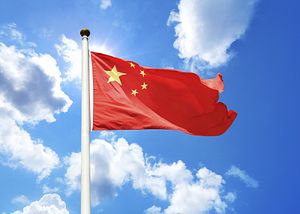According to Chinese state media, Xi Jinping’s anti-corruption efforts are no longer a campaign but a “protracted war.” The declaration came in a Xinhua “yearender” outlining the progress made so far on weeding out corruption.
Xinhua used the recent expulsion of Zhou Yongkang from the Chinese Communist Party as proof of an intensified anti-corruption push. But the piece is quick to point out that the anti-corruption drive “has moved beyond setting warning examples to deter others.” Instead, the scale of the campaign and the new focus on legal reform to institutionalize anti-corruption efforts “indicate that the country intends to fight a protracted war.”
The Xinhua piece is not the first time we’ve heard martial metaphors used to describe the anti-corruption campaign. Back in August, Chinese media quoted unusually frank remarks by Xi Jinping, reportedly made during a closed-door Politburo meeting. “The two armies of corruption and anti-corruption are at a stalemate,” Xi was quoted as saying. He added, “In my struggle against corruption, I don’t care about life or death, or ruining my reputation.”
The comment about “ruining” his reputation through anti-corruption efforts is on point. After only two years in power, Xi has closely tied his legacy to the war on corruption. Success or failure on this front will have a huge impact on how Xi’s time in office is ultimately evaluated, by outside analysts and (more importantly) by the Chinese people.
From his heavy emphasis on the war against corruption, it’s clear that Xi truly does believe this is an existential issue for the CCP itself. As Mu Chunshan pointed out in a recent feature for The Diplomat, Xi is a scion of Party elites. Accordingly, he has a strong sense that safeguarding CCP rule is both his responsibility and his destiny – and Xi clearly feels that dealing with corruption is the key to ensuring CCP legitimacy.
As the anti-corruption campaign heats up, there are new signs that other Party elites are on board. Earlier reports said that Xi’s predecessors, Jiang Zemin and Hu Jintao, were pressuring him to scale back the campaign. In a stark contrast, the latest reports suggest both Jiang and Hu were fully on board with the high-profile takedowns of Zhou Yongkang, Xu Caihou, and Gu Junshan. However, Xinhua’s use of the phrase “protracted war” hearkens back to Xi’s comment about two “armies” at a stalemate within the Party itself. Even if top-level officials are on board, there will be immense resistance from corrupt officials themselves, particularly at the local level where edicts from on-high have been notoriously tricky to enforce.
According to Xinhua, anti-corruption efforts have resulted in 50 investigations into officials at the provincial level or above – so-called “tigers.” The “flies” have been even more numerous, with 84,000 officials disciplined for various violations in the first six months of 2014. And the campaign is far from over, particularly within the military ranks. In the past week, Chinese media outlet Caixin has reported the arrest of two senior military officials: Major General Dai Weimin and Major General Gao Xiaoyan.
Despite these efforts, many Western analysts argue that China cannot truly solve its corruption problem without instituting key political reforms that will enable public supervision of government officials – including a free press and independent courts. While there’s been no movement on the former, this year’s high-profile emphasis on the “rule of law” could help institutionalize anti-corruption procedures by strengthening the legal mechanisms required to investigate and prosecute officials.
There is no guarantee that the anti-corruption campaign will succeed. Xinhua’s description of the effort as a “protracted war” rightly suggests that it will take years before we can even begin to judge whether Xi’s drive to uproot corruption has had a lasting impact. Success or failure in the war on corruption will be a crucial question for the CCP’s continued rule – rampant corruption threatens Party legitimacy, both directly and indirectly, by hampering larger efforts at necessary economic reforms. Xi Jinping is well aware of this; the question is whether he can bring a massive, entrenched system to heel in a few short years.

































